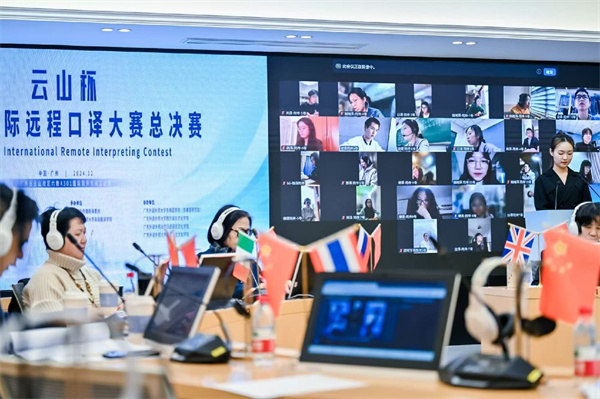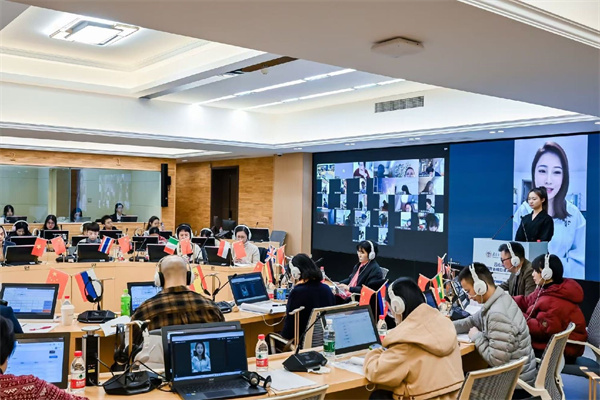发布时间:
来源: GD TODAY

In the final round, representatives from the 21 cities in Guangdong joined 218 contestants, who demonstrated exceptional interpreting skills, and shared the stories of the cities in a total of 16 foreign languages, namely English, French, German, Spanish, Russian, Japanese, Korean, Vietnamese, Thai, Hindi, Malay, Lao, Burmese, Khmer, Portuguese, and Italian.
Organized by Guangdong University of Foreign Studies, this year's contest attracted over 4,000 participants from top institutions worldwide, including the University of Leeds, Moscow State University, Sciences Po Toulouse, and Seoul National University. After intense preliminary and semi-final rounds, 218 contestants advanced to the finals.

"Leveraging international remote interpreting as the medium, this contest brings together Chinese and overseas young students to jointly tell China's stories and promote international cultural exchanges," Professor Yan Xiangbin, President of Guangdong University of Foreign Studies, noted during the contest.
“The contest enables young students to spread Chinese culture worldwide through translation, making them ambassadors of Chinese culture,” Professor Dong Hongchuan, Executive Vice President & Director of the Interpretation Committee of the China Translation Association and President of Sichuan International Studies University, remarked in the final.
Professor Laura Burian from the Middlebury Institute of International Studies at Monterey, the co-organizer of the contest, emphasized the importance of remote interpreting, noting that it is an effective communication method that overcomes language and geographical barriers and will be the future of language services.
Harris Ghinos, Vice President of the International Association of Conference Interpreters (AIIC), praised the contest for fostering teamwork and adapting to advancements in artificial intelligence and interpreting technology. He encouraged new interpreters to join AIIC and work together to shape the future of the interpreting industry.
